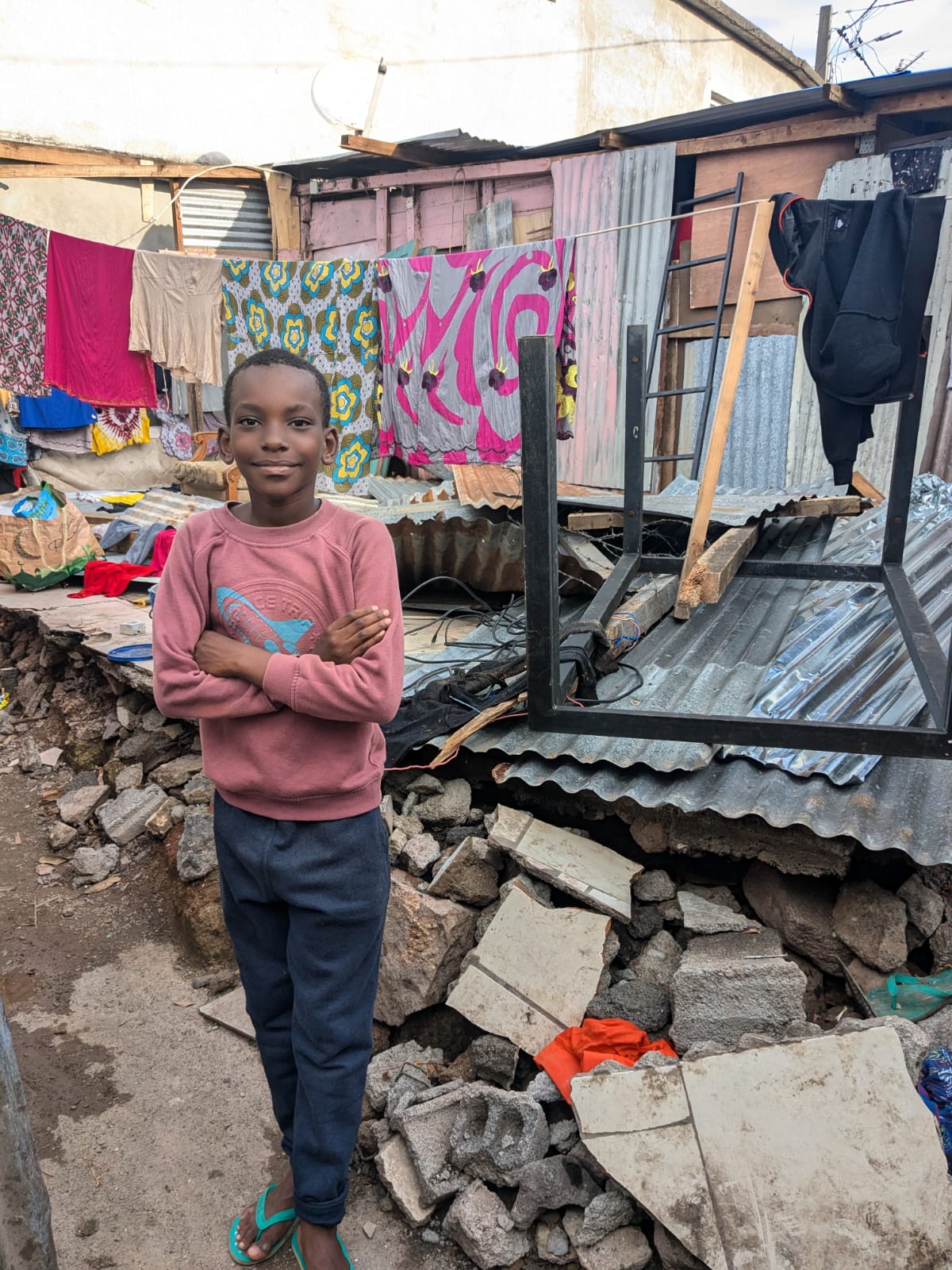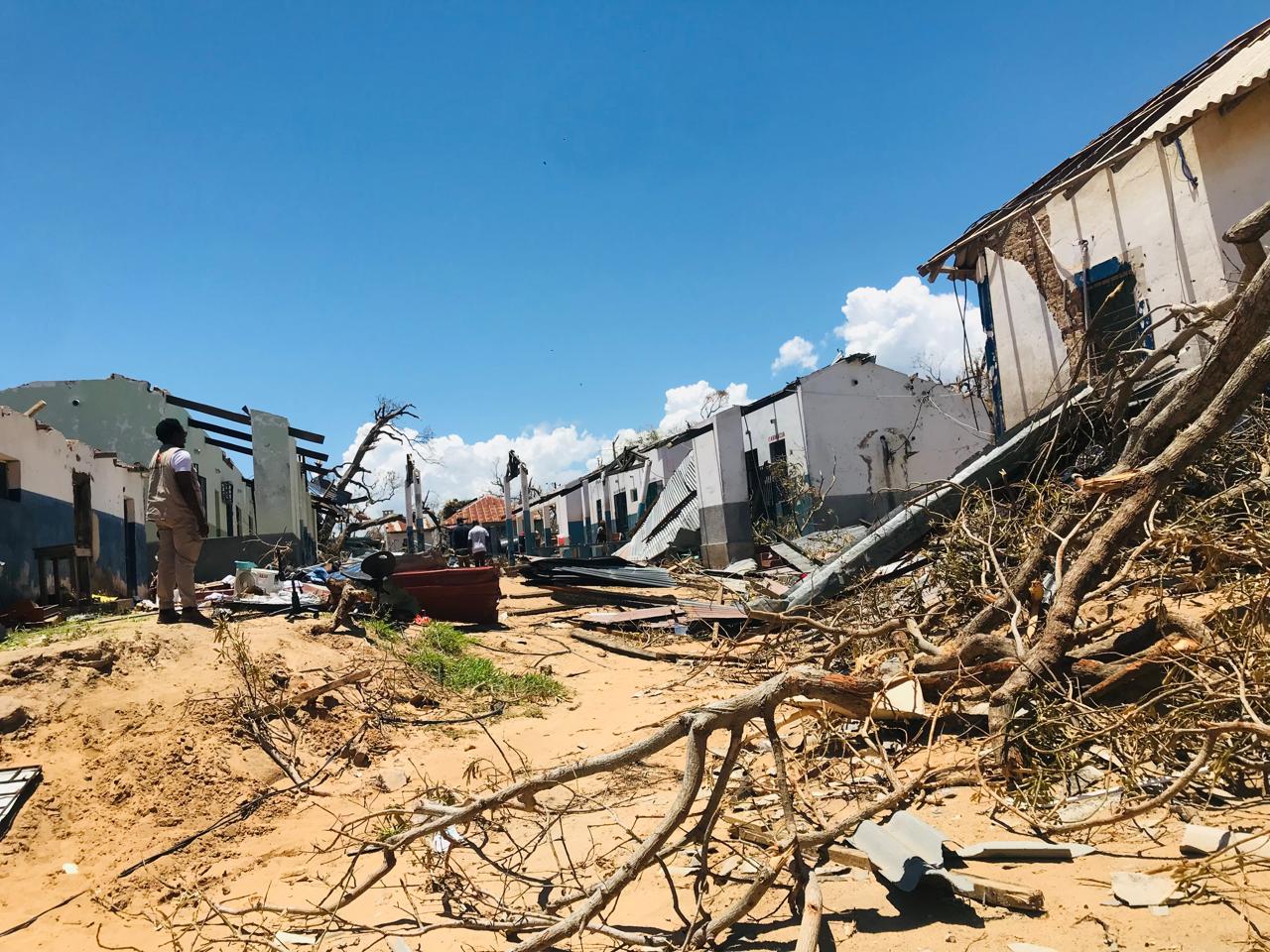Cyclone Chido has devastated Mayotte and Mozambique
More than a week after the passage of cyclone Chido, the humanitarian situation in Mayotte and Mozambique is alarming. HI is ready to help those affected on the ground.

© HI 2024
On 14 December, Cyclone Chido crossed the islands of Madagascar, Mayotte and the Comoros, then continued on to northern Mozambique and southern Malawi from 15 to 17 December. With winds of up to 243km/h and very heavy rain, the cyclone caused extensive damage, with power, water and communications outages. In just a few hours, it plunged hundreds of thousands of people into a major humanitarian crisis in Mayotte and Mozambique.
More than a week on, the death toll continues to rise: at least 120 people have died in Mozambique, according to a new update published on Monday 23 December by the Disaster Management Institute of Southern African. In Mayotte, the provisional toll 35 dead and 2,500 injured, according to the Ministry of Overseas France.
In Mayotte, "it's as if everything has died"
In the French department, the violent winds devastated thousands of homes, including many precarious, overcrowded dwellings that could not withstand the storm.
 Kamar, aged 8, lives in one of them, in the Labattoir district of Petite-Terre. The cyclone swept away the tin roof, blew out the walls and overturned all the furniture in the house where he lives with his brothers and sisters, his parents and his grandmother. Still in shock, the little boy is currently staying with relatives:
Kamar, aged 8, lives in one of them, in the Labattoir district of Petite-Terre. The cyclone swept away the tin roof, blew out the walls and overturned all the furniture in the house where he lives with his brothers and sisters, his parents and his grandmother. Still in shock, the little boy is currently staying with relatives:
"My house was completely destroyed. We've lost everything. Everyone is sad. We need everything: food, water, clothes... electricity. I hope that everyone is safe, I hope that my school will be repaired and that there will never be another cyclone.
Claire is an emergency nurse in Mayotte, and tells the story of how the unprecedented scale of the cyclone disfigured the island:
"Nobody had ever seen or experienced anything like this before. Mayotte is a very green island, but here it was as if there'd been a huge fire and everything had been razed to the ground. It was as if everything had died. There were no trees left, or just trunks ravaged by the wind, and the houses were all on the ground...".
Alongside her work at the hospital, the young woman went to help out in a shanty town in Petite-Terre and saw the alarming situation on the ground:
"We don't know where to start, there's sheet metal everywhere, rubbish, materials that were used for the houses. The only thing we can do is try to move it around to make a bit of room and rebuild what we need, but move it around and put it where?"
For the carer, the need for drinking water and food is a priority, as is waste and wastewater management.
At least 380,000 people affected in Mozambique
 The situation in Mozambique is catastrophic, with tens of thousands of homes destroyed and the human toll rising by the day. According to the United Nations, at least 380,000 people have been affected, including more than 90,000 children in Cabo Delgado, according to UNICEF.
The situation in Mozambique is catastrophic, with tens of thousands of homes destroyed and the human toll rising by the day. According to the United Nations, at least 380,000 people have been affected, including more than 90,000 children in Cabo Delgado, according to UNICEF.
The Mecúfi and Metuge districts have been particularly badly affected, explains Pauline Jacquart, HI's Mozambique Programme Director:
"Some of our inclusion and mental health experts are present in the two districts hardest hit by the cyclone: Mecúfi and Metuge. In Mecúfi, 99% of homes have been destroyed. This has left 16,000 families homeless as the rainy season gets underway. We are seeing many needs, particularly in terms of shelter, cooking utensils and blankets, but also in terms of mental health, to support these people shocked by what has happened to them: losing everything in just a few hours".




